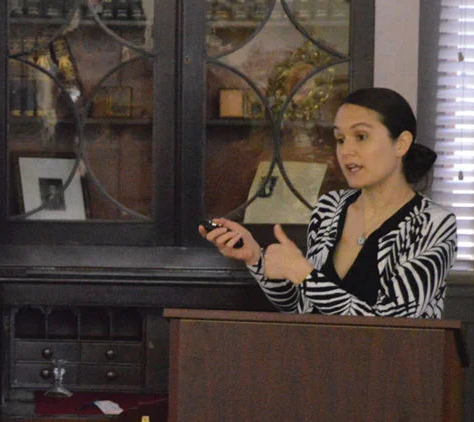We've worked with Meredith McDonough at the Alabama Department of Archives and History since 2018; you may have heard us talking about her very successful WWI Service Cards project -- 111,000 cards indexed in 2 1/2 months. We recently interviewed Meredith for our blog, and her advice is so great that I wanted to share it with you.
On prioritizing projects:
All the materials in our projects are already available in the ADAH Digital Collections, where they can at least be discovered and browsed without making a special trip to Montgomery. For the bulk of our digital content, this level of access is adequate—just like we’ll never scan all of ADAH’s physical records, we’ll never transcribe all of our digitized records. Instead, we focus those efforts on collections that would most benefit from extensive transcription. For example, it’s great to have the 1875 voter registration volumes online and in color, but it’s very difficult to find specific people or gather statistics by reviewing the books page by page. The enhanced access made possible by our FromThePage volunteers both facilitates and encourages exploration of these rich but complicated sources of information.
On Launching Projects:
ADAH has a robust in-person volunteer program, so we usually start things at home, and we’ve found that soft local launches give us a chance to work out kinks before opening up projects to the public. It’s helpful to talk with our regular folks about the collections and instructions because they will let us know if something doesn’t make sense or work as expected.
Social media has proven to be our most effective tool for soliciting participation, but not in quite the way we expected. While many of our volunteers are among ADAH’s dedicated followers, we have been stunned by the number who learn about our projects through virtual word-of-mouth: Tweets, Retweets, shares, and likes. We tend to keep our large projects private and then add collaborators as they express interest (just so we can establish a direct line of communication), and these exchanges often begin with “I just saw a post about your project on . . .” or “I’m not from Alabama, but . . .” Hearing from people around the country—and beyond, sometimes—is both gratifying and heartwarming, confirming the value of our records and establishing a sense of community that transcends state lines.
On the importance of crowdsourcing:
These projects are also a potential method of outreach and advocacy. We individually benefit from the work done by our volunteers, but the entire historical community benefits from an increased public awareness of and appreciation for what we do. Crowdsourcing invites citizens to join in that work, giving them a sense of responsibility for the past we all share; a direct, personal connection to the people who made it; and a desire to support and protect the institutions that preserve it.
The full interview has many more gems, including working with students, using FromThePage for metadata description, and working with FromThePage to expand the platform to different types of material and crowdsourcing tasks.
Want to launch a project on FromThePage but don't know where to start? Book a call with Ben and Sara to brainstorm ideas.

